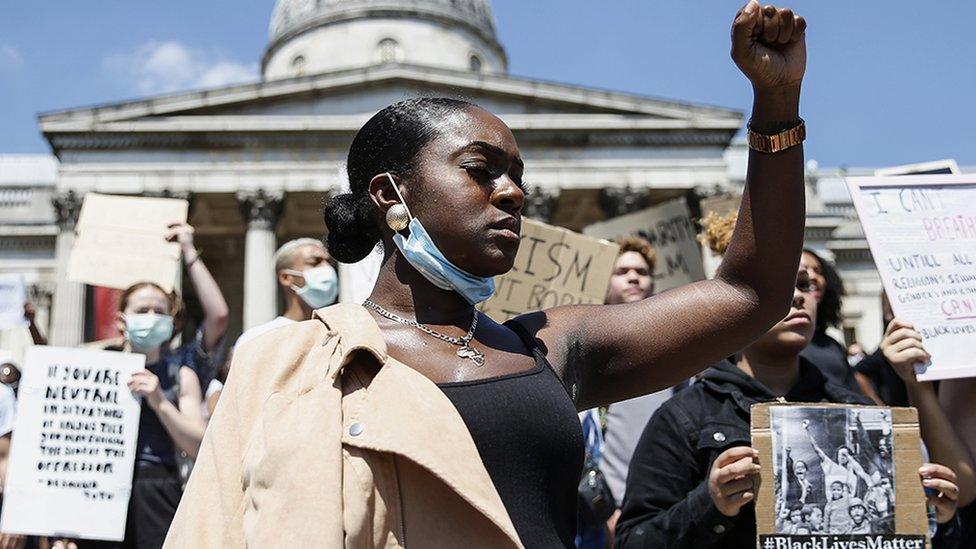Coronavirus: Anti-racism rallies in Belfast and Londonderry
- Published
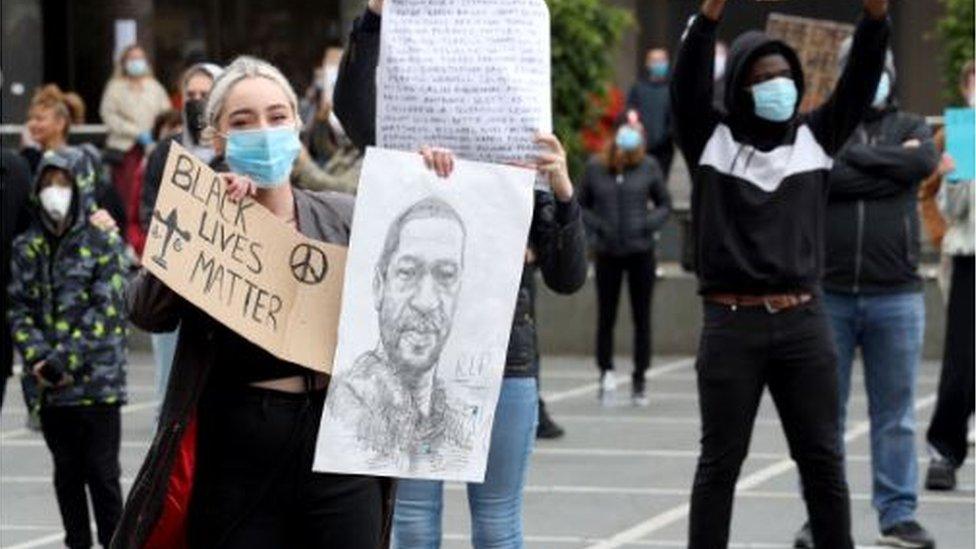
Protesters taking part in the rally at Belfast's Custom House Square
Up to 1,000 people have taken part in anti-racism rallies across Northern Ireland.
In Northern Ireland, there were protests in Belfast and Londonderry in response to the death of African-American George Floyd in US police custody.
Police said they had issued "a significant number" of fines given the dangers of crowds in the pandemic.
A police chief defended their action saying: "These are no ordinary times".
Justice Minister Naomi Long said police were "put between a rock and a hard place" and that the protests should not have gone ahead.
Northern Ireland's first minister Arlene Foster and chief medical officer Michael McBride had asked the organisers to find a different way to protest in the light of the pandemic.
On Saturday, PSNI Assistant Chief Constable Alan Todd confirmed Community Resolution Notices (CRNS) and fines had been handed out.
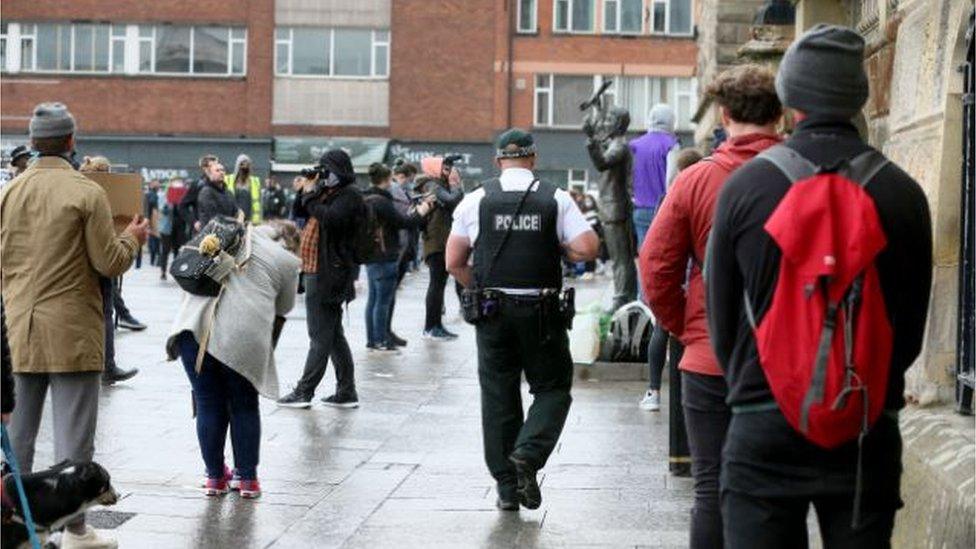
Crowds gathered to protest outside Belfast's Customs House
"In other times, we would have been working with the organisers and protestors to facilitate a lawful and peaceful protest to mark the avoidable and unnecessary death of George Floyd, however, these are not ordinary times," he said.
"The Health Protection Regulations are in place to protect us all during this pandemic and it is everyone's responsibility to adhere to them to protect our society."
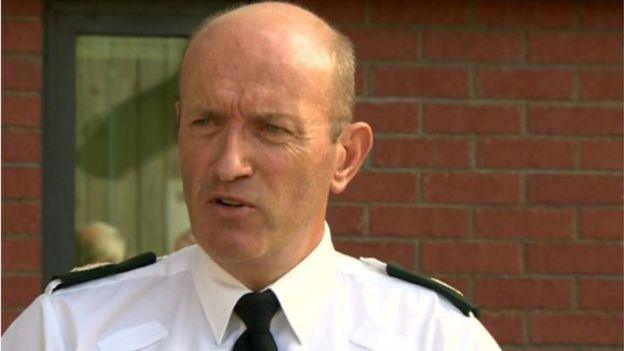
ACC Alan Todd had asked people not to attend the protests
Police said less than 500 people gathered at each of the two protests and, in Newry, a crowd also gathered but dispersed quickly.
The police chief said organisers and others would now be reported to the Public Prosecution Service with a view to prosecution.
Mrs Long added: "At the end of the day the guidance and the rules and regulations are there to protect life, and we are all required to respect that.
"I was very clear that I wanted them to find other ways - and indeed we found other ways to try and show our solidarity with those who are concerned about racism and about the situation regarding George Floyd.
"But I think it's important we do that in a lawful manner. And I think that the police have policed this in a proportionate way. I think it's unfortunate that it came to this."
Patrick Corrigan of Amnesty International in Northern Ireland called the police action "deeply worrying".
"People have taken to our city's largest public squares to express their rage at the murder of George Floyd, and take a stand against the racism which BAME people experience in the US and closer to home. Their voices must not be silenced," he said.
"I pay tribute to today's protest organisers in Belfast and Derry-Londonderry, who went to great lengths to ensure protests were socially distanced and safe for participants in light of the current public health crisis."
In Belfast, it's understood strict social distancing measures were in place with markers on the road at the rally in Custom House Square.
Across the UK, protests were held in cities including London, Manchester, Cardiff, Leicester, and Sheffield.
In London, protesters knelt for a minute's silence before chanting "no justice, no peace" and "black lives matter".
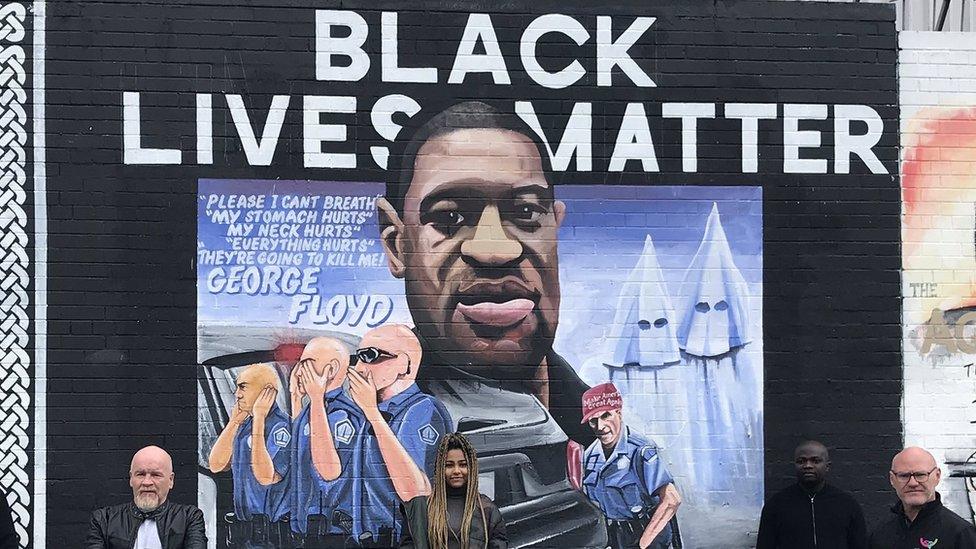
A mural supporting the protests has been unveiled on Belfast's Falls Road
The protests went ahead despite officials advising against mass gatherings due to coronavirus.
In the Republic of Ireland, several hundred protesters gathered at the US Embassy in Ballsbridge, Dublin.
Organisers had asked people living within five kilometres of the area to join what they called a "socially-distanced" protest.
They have been handing out personal protective equipment to those in attendance.
Similar demonstrations were also held in Galway and Limerick.
Sign of solidarity
Meanwhile, a mural highlighting the death of George Floyd, and supporting the Black Lives Matter campaign has been unveiled on the Falls Road in west Belfast.
It was the idea of Belfast tourism organisation Fáilte Feirste Thiar and community arts festival Féile an Phobail and was painted by Marty Lyons and Mickey Docherty.
Demonstrations that had been due to take place at other venues in Northern Ireland were later cancelled.
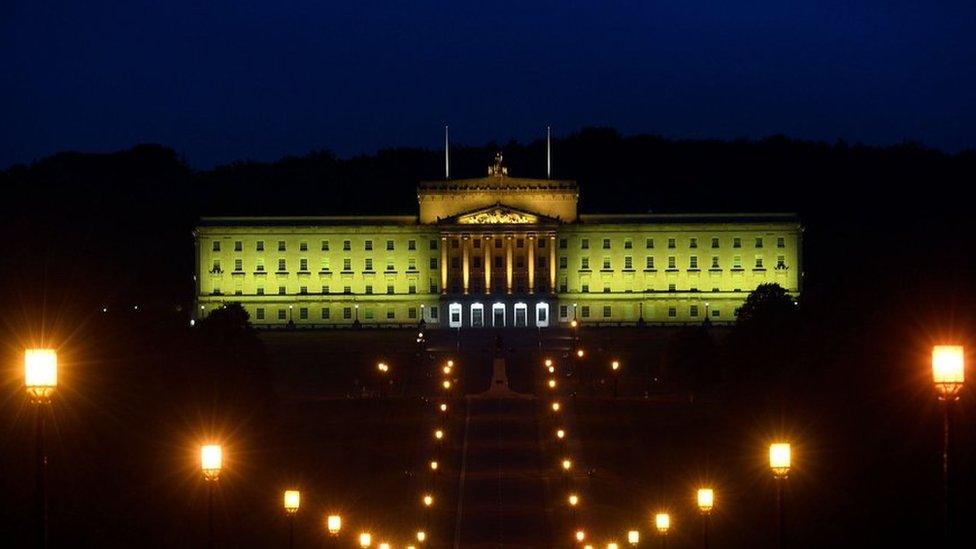
Stormont was lit yellow in solidarity
Parliament Buildings was lit up in yellow on Saturday as a sign of solidarity with the Black Lives Matter movement.
The Assembly Commission said the gesture was "a strong and visible symbol" of opposition to racism.
George Floyd, 46, an African-American man, died after being arrested by police outside a shop in Minneapolis, Minnesota.
Footage of the arrest on 25 May shows a white police officer kneeling on Mr Floyd's neck while he was pinned to the ground.
Derek Chauvin, 44, has since been charged with second-degree murder.
His death has led to widespread demonstrations and civil unrest in the US and further afield.
- Published5 June 2020
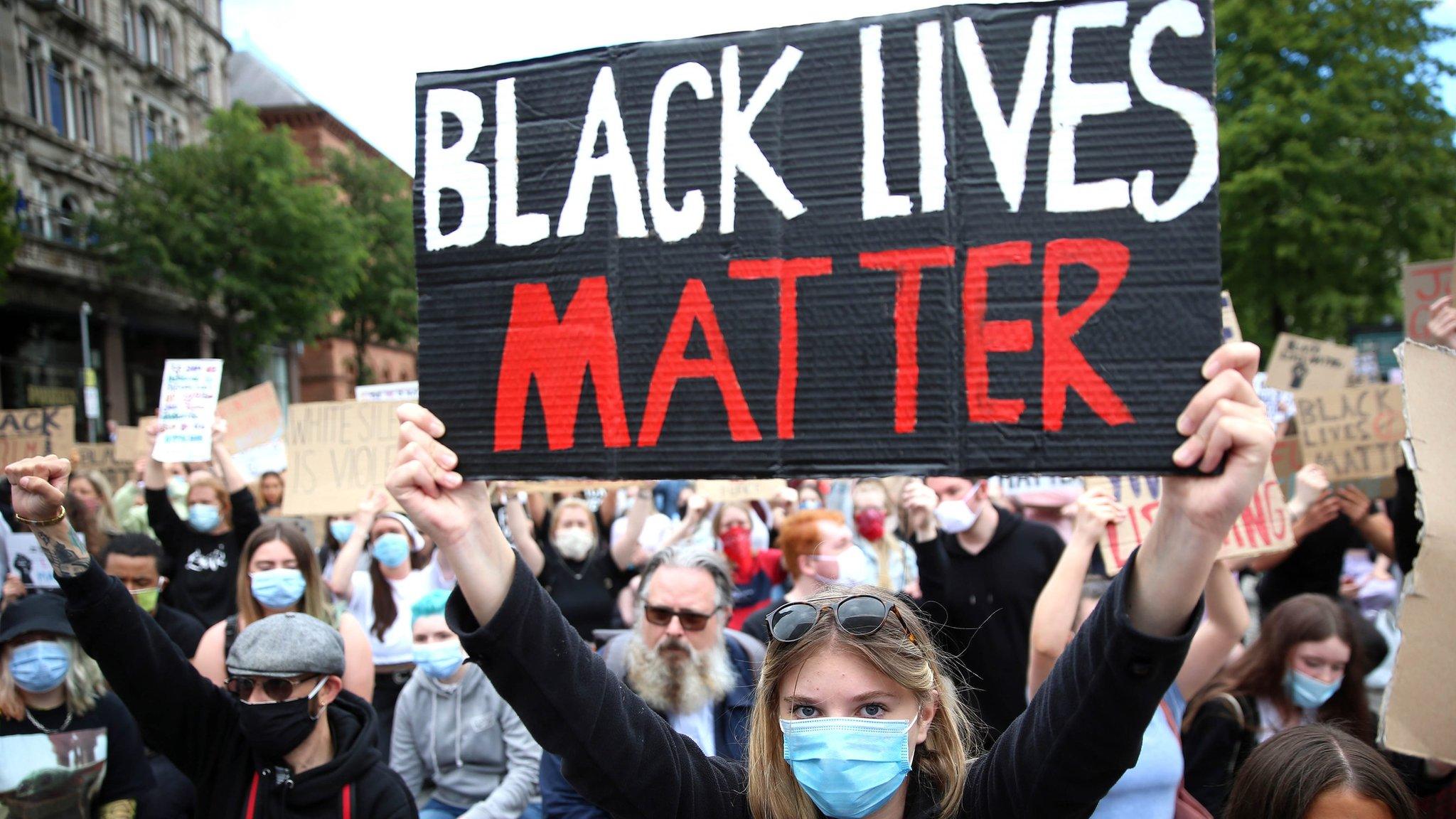
- Published3 June 2020
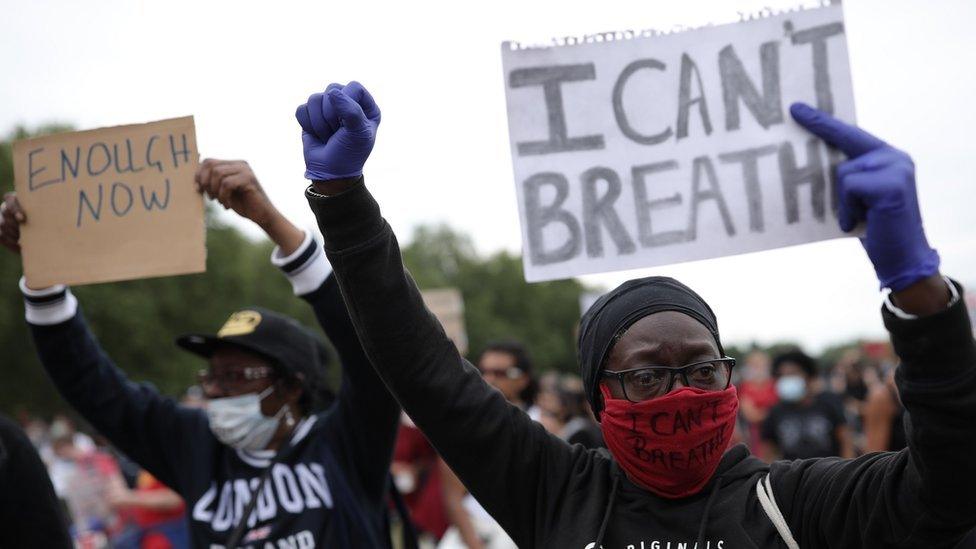
- Published2 June 2020
